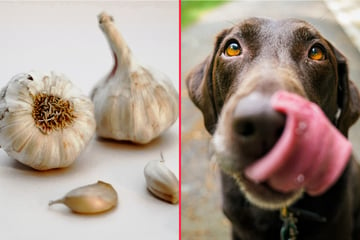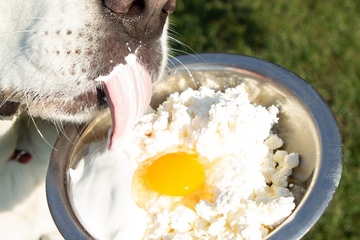Can dogs eat blueberries?
Dogs absolutely love to share our food with us, but it isn't always a good idea. When it comes to blueberries, though, is it okay? Can dogs eat blueberries? It's time to investigate.
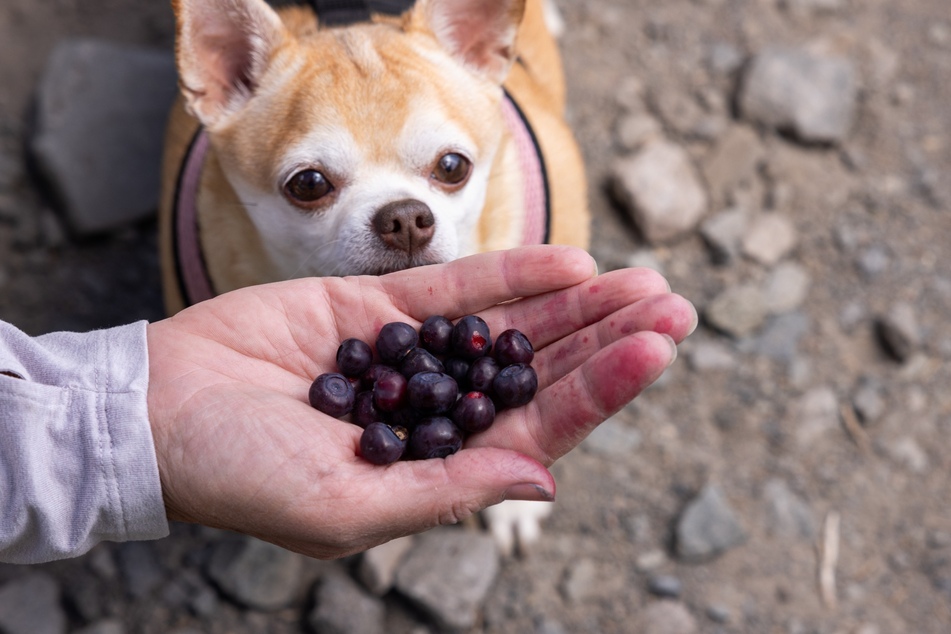
Blueberries are some of the greatest fruits to have ever graced our palettes, packed full of juicy flavor as well as a load of healthy vitamins. There are few foods more tasty, and few foods more healthy while being so tasty, making the humble blueberry the ultimate superfood.
But can dogs eat blueberries? Can we safely oblige their strongest desires, or are they dangerous for our canine companions?
Can dogs eat blueberries?
Yes, blueberries are generally quite healthy for dogs and very rarely pose any risk at all. Rich in vitamins, low in calories, and refreshing, blueberries are both a superfood for humans and for dogs. As a result, while we wouldn't recommend the overconsumption of blueberries, a few here and there for your dog will likely do a world of good.
Due to the fact that blueberries contain lots of vitamins, fiber, phytochemicals and antioxidants, they can help protect the cells of both humans and dogs, all while filling their bellies and mouths with a delicious and eternally special fruit. What's not to love?
Here are a few potential health benefits of blueberries for dogs:
- Anti-inflammatory effects
- Support for a healthy immune system
- Support healthy digestion
It is not a bad idea to add some blueberries to your darling doggo's delicious diet, and it can even provide some added nutritional benefits that you may not have previously expected. These little fruits will make your dog happy, give you something to share with him or her, and are just absolute wonders.
However, as with everything, it's the dose that counts. While it is perfectly okay to give your dog blueberries, you need to provide them in moderation and always look out for potential allergic reactions.
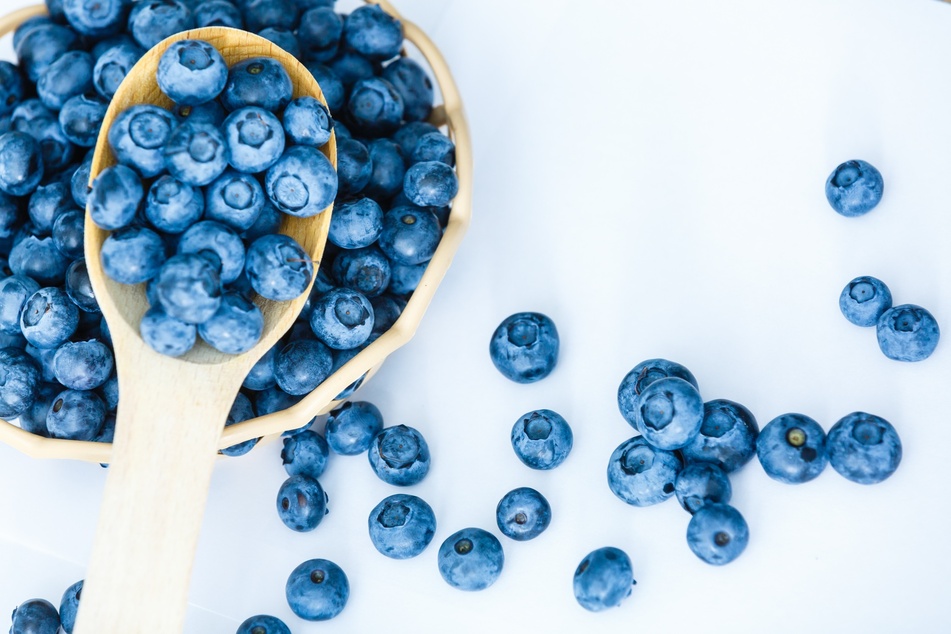
How many blueberries can a dog eat?
When you fill your dog's food bowl up with blueberries, you should keep in mind one simple sentence: Blueberries are a great doggo snack, but they are not a meal. These tiny little blue balls will give all sorts of lovely benefits if provided in the right amount, but they are not packed full of the base proteins that your darling doggo needs to survive.
What you need to be careful about when feeding your dog any kind of fruit is the level of sugar that you are giving it. There are two points here: 1) Your dog can suffer from a sugar spike, which then crashes and can be very unpleasant, and 2) You don't want to cause health problems or teeth rot problems in your perfect pooch.
As a result, we would recommend heavily that you restrict your dog's consumption of blueberries to only 3–5 berries per day.
Does it matter if the blueberries are raw, cooked, or frozen?
Ultimately, it doesn't really matter in which form the blueberries are when you feed them to your dog. They can be consumed frozen, they can be consumed cooked, and they can be consumed safely when completely raw as well. With that in mind, there are a few things to look out for.
Here are a few things to look out for:
- Cooked blueberries: You don't want them to be too hot, and you don't want anything added to them, including spices or sugar.
- Frozen blueberries: While harmless, they can be a choking hazard, so they should probably be avoided where possible.
- Raw blueberries: Make sure that you purchase organic berries and wash them in case there are any pesticides. This is the best way for your dog to eat blueberries.
As you can see, the concerns are pretty minimal, and you can more or less feed your dog blueberries in whatever way you see fit.
Risks of dogs eating blueberries

Dogs can be allergic to different foods, including blueberries, and this is likely to be the biggest risk associated with them. The probably is very, very low, but care should still be taken the first few times your dog eats blueberries. You won't know that it has an allergy until it becomes obvious or it gets discovered by your veterinarian.
Start by only feeding your dog small amounts of blueberries and monitoring it closely to see what happens. If the dog shows signs of an allergy or intolerance, you should consult a vet immediately and have the symptoms clarified. This is important as a major allergic reaction can be very dangerous.
These are the symptoms of a dog that's allergic to blueberries:
- Swelling
- Itching
- Sneezing
- Inflammation or redness of the skin
- Tiredness or sluggishness
- Diarrhea or constipation
- Vomiting.
If the dog does not show any physical or mental reaction, then blueberries are likely to be safe for it and can be fed relatively regularly.
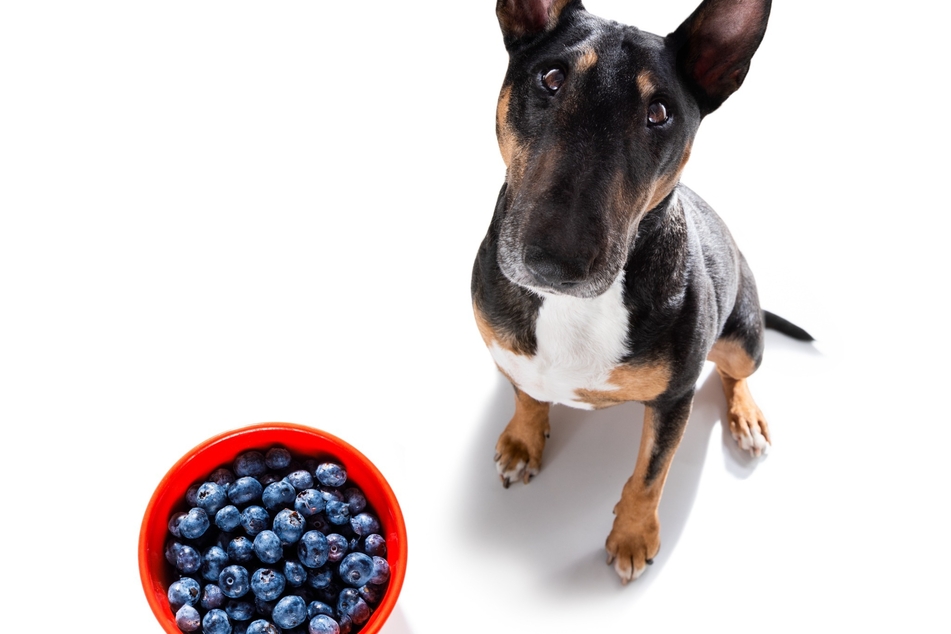
How to help a dog that has eaten too many blueberries
Ultimately, the only way that you can treat a dog that has overdosed on blueberries or is allergic to blueberries is to simply take it to the vet. This needs to be done as soon as possible because if symptoms have been observed, then you simply don't know how long you have, nor how serious the situation could potentially get.
As a result, we recommend that everyone always has a go-bag ready for their darling doggo, just in case of an emergency. That means a high-quality dog carrier, a sturdy leash and harness, and any essentials that you might need for the journey. Call the vet in advance and describe the symptoms, just in case you are overreacting.
Every dog likes to eat, and many dogs will insist on having a taste or two of your food. Ultimately, while a little snack is okay here and there, we'd recommend not making human food a staple of your darling doggo's diet.
Cover photo: 123RF/Wollertz
